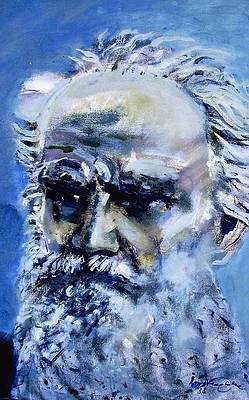Leo Tolstoy Archive
Written: 1899
Source: Original text from Gutenberg.org
Transcription/Markup: Andy Carloff
Online Source: RevoltLib.com; 2021

His conversation with the president and the fresh air quieted Nekhludoff a little. He now thought that the feelings experienced by him had been exaggerated by the unusual surroundings in which he had spent the whole of the morning, and by that wonderful and startling coincidence. Still, it was absolutely necessary to take some steps to lighten Maslova’s fate, and to take them quickly. “Yes, at once! It will be best to find out here in the court where the advocate Fanarin or Mikishin lives.” These were two well-known advocates whom Nekhludoff called to mind. He returned to the court, took off his overcoat, and went upstairs. In the first corridor he met Fanarin himself. He stopped him, and told him that he was just going to look him up on a matter of business.
Fanarin knew Nekhludoff by sight and name, and said he would be very glad to be of service to him.
“Though I am rather tired, still, if your business will not take very long, perhaps you might tell me what it is now. Will you step in here?” And he led Nekhludoff into a room, probably some judge’s cabinet. They sat down by the table.
“Well, and what is your business?”
“First of all, I must ask you to keep the business private. I do not want it known that I take an interest in the affair.”
“Oh, that of course. Well?”
“I was on the jury to-day, and we have condemned a woman to Siberia, an innocent woman. This bothers me very much.” Nekhludoff, to his own surprise, blushed and became confused. Fanarin glanced at him rapidly, and looked down again, listening.
“Well?”
“We have condemned a woman, and I should like to appeal to a higher court.”
“To the Senate, you mean,” said Fanarin, correcting him.
“Yes, and I should like to ask you to take the case in hand.” Nekhludoff wanted to get the most difficult part over, and added, “I shall take the costs of the case on myself, whatever they may be.”
“Oh, we shall settle all that,” said the advocate, smiling with condescension at Nekhludoff’s inexperience in these matters. “What is the case?”
Nekhludoff stated what had happened.
“All right. I shall look the case through to-morrow or the day after—no—better on Thursday. If you will come to me at six o’clock I will give you an answer. Well, and now let us go; I have to make a few inquiries here.”
Nekhludoff took leave of him and went out. This talk with the advocate, and the fact that he had taken measures for Maslova’s defense, quieted him still further. He went out into the street. The weather was beautiful, and he joyfully drew in a long breath of spring air. He was at once surrounded by isvostchiks offering their services, but he went on foot. A whole swarm of pictures and memories of Katusha and his conduct to her began whirling in his brain, and he felt depressed and everything appeared gloomy. “No, I shall consider all this later on; I must now get rid of all these disagreeable impressions,” he thought to himself.
He remembered the Korchagin’s dinner and looked at his watch. It was not yet too late to get there in time. He heard the ring of a passing tramcar, ran to catch it, and jumped on. He jumped off again when they got to the market-place, took a good isvostchik, and ten minutes later was at the entrance of the Korchagins’ big house.